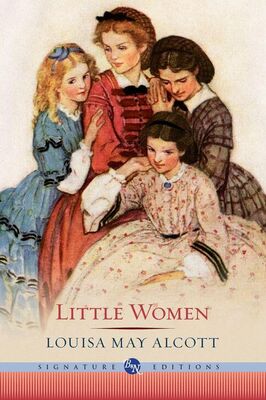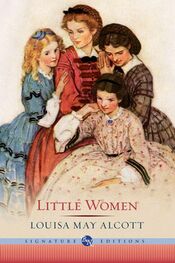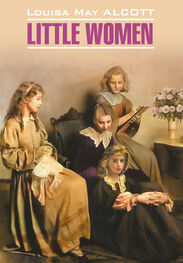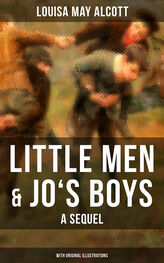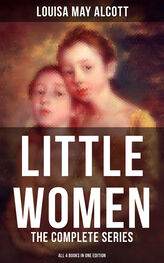That is, capeline; a light woolen hood.
Section of the western Alps extending to the Mediterranean Sea.
Sweet idleness (Italian).
Title of a story from The Parent’s Assistant (1796), a collection of children’s stories by Maria Edgeworth.
Reference to the third-century Roman martyr Saint Lawrence, who was roasted to death on a gridiron.
Xavier Jouvin was a nineteenth-century French glove-maker who devised a method for standardizing glove sizing.
Signet rings.
My brother (French).
Goodbye, miss (French).
In Homer’s Odyssey, Odysseus’s son, Telemachus, searches for his missing father.
Cloth needle case.
Illegible, scrawled writing.
In The Pilgrim’s Progress (see endnote 1), the inhabitants of Beulah, a land adjacent to Heaven.
Shore.
Insincere, deceptive person.
Weeds that grow in grain fields.
Austrian composer Wolfgang Amadeus Mozart (1756-1791) fell in love with the young soprano Aloysia Weber and proposed to her (despite his father’s disapproval) but was rejected; four years later, in 1782, he married her younger sister Constanze.
In the Catholic Church, a long mass marked by singing.
Matches (French).
Port city in Italy, located between the Apennine Mountains and the Ligurian Sea.
In a small hotel (French).
Gathering nuts, usually by shaking or beating them out of the tree.
Weight for the kite.
Stripped of ornament, plain.
Paraphrase of a famous remark Samuel Johnson made in a letter to Lord Chesterfield (Philip Dormer Stanhope, 1694-1773), an early patron of his dictionary, when Chesterfield sought credit for sponsoring it after having neglected Johnson for ten years.
Rascal.
Act like a schoolmarm.
In Dickens’s novel David Copperfield (1849-1850), the fisherman Daniel Pegotty is the brother of the Copperfields’ housekeeper; upon seeing David after many years, he repeatedly proclaims David and his companion “gentlemen growed.”
In Aesop’s fable “The North Wind and the Sun,” the sun and the wind vie to see which can make a man remove his coat; after the wind tries to blow the coat off the man, the sun wins through gentleness, warming the man until he removes the coat.
Ornamental chain or clasp worn at a woman’s waist to hold keys, charms, and so on.
At one’s pleasure (Latin).
Fine lace made with a needle.
Mr. One-too-many (French); that is, Mr. Bhaer is afraid he’ll be intruding.
Commanding, strong; Jove, or Jupiter, is chief of the Roman gods (the Greeks called him Zeus).
Removed.
From “Come, Ye Disconsolate” (1816), by Irish poet Thomas Moore; the March sisters probably sing lyrics slightly revised by American hymn writer Thomas Hastings (1784-1872).
Reference to “Kennst du das Land” (see footnote on page 00).
Notched device for removing boots.
Juliette Recamier (1777-1849), French society beauty and wit famous for her fashionable intellectual gatherings; a friend of Madame de Stael, she is portrayed in de Stael’s novel Corinne (see note to p. 342).
Fourth-century B.C. Greek philosopher and tutor of Alexander the Great who wrote on many topics, including logic, metaphysics, poetics, and rhetoric.
That is, a person who begrudges to others what he cannot use himself; allusion to an Aesop’s fable about a dog who won’t let an ox get near the manger full of straw in which the dog lies.
In the Bible (see Acts 9:36-41), Dorcas is a disciple of Christ who does good deeds for the poor; she is often depicted holding a basket.
Fourth-century French prelate and founder of the first monastery in Gaul; legend tells that he gave half his cloak to a beggar who turned out to be Jesus Christ.
The ancient Greek philosopher and teacher Socrates often taught by asking questions.
Fifth-century B.C. Athenian general and politician; a student and friend of Socrates.
The Artful Dodger is a bold young pickpocket in Dickens’s novel Oliver Twist (1837-1839).
Love of children.
Little boy, scamp (German).
Sturdy cotton fabric with a twill (diagonal) weave, used for linings and pockets.
Offices for bookkeeping and other business transactions.
Youngsters (German).
Large, narrow-necked bottle, usually wicker-encased.
The first love is the best (German).
Awkward young person.
It tosses the dog in the nursery rhyme “The House that Jack Built”
Of one-quarter black ancestry.
Also known as the Teutonic Order, the Teutonic Knights were a powerful German military religious order of nobles founded in 1190 in Jerusalem; the knights took vows of poverty, chastity, and obedience.
The Roman goddess Pomona is the protector of fruits and orchards.
Sour apples.
Cuts.
Near-quotation Near-quotation of American poet Henry Wadsworth Longfellow’s poem “The Rainy Day” (1842).
(p. 3) “Go then, my little Book, and show to all. . . .” JOHN BUNYAN: Throughout Little Women, Alcott makes much use of English writer John Bunyan’s seventeenth-century religious allegory The Pilgrim’s Progress, from This World to That Which Is to Come. This epigraph is recast from part two (1684) of this moral-instruction classic, which Alcott absorbed as a child. Bunyan’s text narrates the journey of a character named Christian through many perilous adventures on his way to the Celestial City, or Heaven. During his journey, Christian encounters many evocatively named people and beings who try to help or to hinder him, including Faithful, Hopeful, and the Giant Despair. The book preaches for the bearing of life’s burdens and for remaining resistant to temptation. Many of the chapter titles in Little Women refer to events and locations in The Pilgrim’s Progress—“Beth Finds the Palace Beautiful,” “Amy’s Valley of Humiliation,” “Jo Meets Apollyon,” “Meg Goes to Vanity Fair,” “The Valley of the Shadow,” and so on—as each of the March daughters takes on one of Christian’s temptations particular to her temperament and personal failings.
Читать дальше